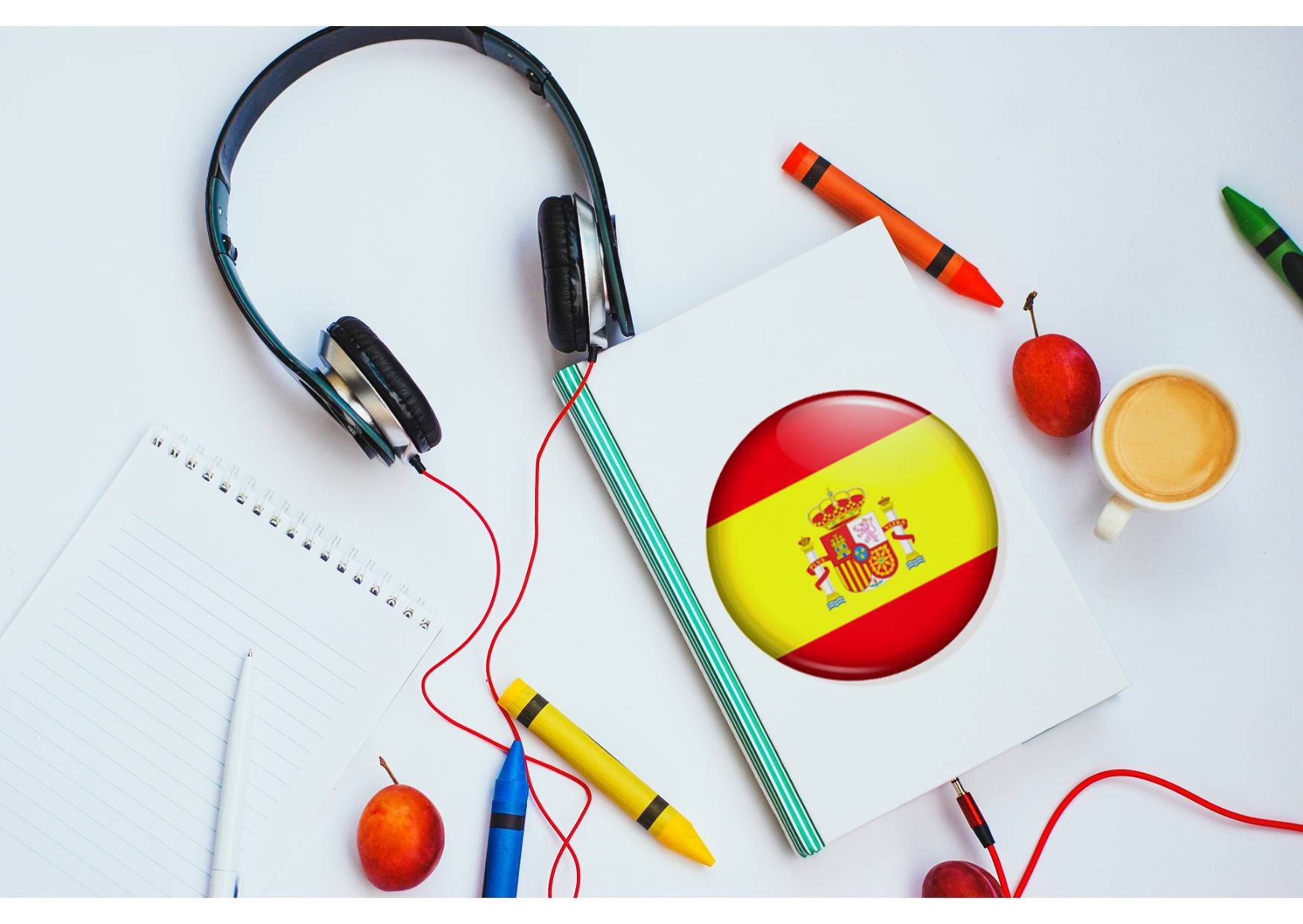Learning Spanish: The best Spanish language schools in Spain
Discover the best Spanish language schools in Spain - where to study Spanish in Malaga, Valencia, Barcelona, and Madrid.
Jale

There’re many reasons why you should learn Spanish, the 4th most spoken language in the world. Learning Spanish is the key to feeling at home in Spain. You’ll be able to make local friends, you’ll have more options when applying for jobs, you’ll understand local pop culture and news, read menus and government letters with ease or visit the doctor without worrying you won’t understand them.
The best way to learn Spanish is to learn it in Spain. Why? Because exposure to Spanish outside the classroom can help you practice your skills every single day. From shop signs to Spanish people, you’ll be surrounded by Spanish everywhere.
But with over a thousand Spanish language schools across Spain, it can feel nearly impossible to narrow down the schools that are the best fit for you. Don’t worry, we’ve got your back.
We’re sharing a list of Spanish language schools in Malaga, Valencia, Barcelona and Madrid that have been accredited as one of the top schools in Spain. All these schools offer numerous courses for different age groups and various extracurricular activities to help you immerse in Spanish culture.
What's the best place to study Spanish in Spain?

The best place to study Spanish depends on which city you want to live in and how fast you want to learn.
If you want to learn Spanish in one of Spain’s best cities, then we recommend studying Spanish in Barcelona, Málaga, Valencia or Madrid. These cities are quite international and you’ll find yourself surrounded with other expats who’re learning Spanish.
If you prefer learning Spanish by surrounding yourself with mostly locals, then we recommend heading to one of the less expat popular cities, such as Salamanca, Bilbao, Cadiz, etc. You’ll get to truly immerse yourself in the local culture and learn Spanish quickly.
Keep in mind that Spain has different dialects. While most schools will teach Castilian, you’ll likely hear Spanish with an Andalusian accent in Málaga or Valencian in Valencia.
Are you coming to Spain just to learn Spanish? In that case, you'll need to apply for a student visa to legally enter and live in Spain. Since the majority of the Spanish language schools don’t handle the student visa process, you’ll have to organise the documents and apply for the visa yourself.
How to Choose a Spanish Language School in Spain

There’re a couple of things you should consider before choosing your dream Spanish Language school.
-
Accreditation We wanted to make the selection process easier for you. So we only covered Spanish language schools accredited by Instituto Cervantes and FELEDE in this article. These are 2 institutions that assess the quality of education at language schools and give them a stamp of approval.
-
Types of courses Most schools typically have semi-intensive, intensive, immersive, or private courses. Proficiency levels are divided into 6 levels (A1 to C2) proposed by the European Framework for Languages. Some schools also offer exam preparation for the DELE exam, a compulsory exam for those who want to apply for Spanish citizenship.
-
Extracurricular activities Spanish schools in Spain offer a myriad of extracurricular activities like sightseeing, flamenco classes, cooking, sports, etc. Taking part in these is a perfect way to learn Spanish in a real life setting, doing an activity you love.
-
Housing availability Most schools offer accommodation as an added on option. In this case, you'll either stay in an apartment or with a host family that will provide you with accommodation and food. A cheaper option would be to book your own studio or room via HousingAnywhere; the monthly rent for a single room in Spain is €424 as opposed to the monthly rent of €600-€900 charged by language schools.
The Best Spanish Language Schools across Spain

Málaga Spanish schools
1. Oléolé Spanish School
-
Location: Oléolé Spanish school is located in the centre of Málaga. So no matter which neighbourhood you live in, It's easily reachable with Málaga’s public transport.
-
Courses: Oléolé offers 3 types of courses: intensive A1-A2, intensive A2 lessons and private courses.
-
Class size: Small groups of maximum 10 students.
-
What’s unique: Unlike traditional language schools, Oléolé has a different approach to teaching Spanish grammar. They make the classes fun and interactive with various games.
-
Accommodation: Oléolé doesn't offer accommodation. You’ll have to search for your own accommodation in Málaga.
-
Average course cost: The 3-week Intensive B1.1 Spanish course will cost you around €649.
2. AIL Málaga
AIL Málaga is the sister academy of the highly acclaimed AIL Madrid. They’ve been in the business since 2006 and have helped thousands of students integrate into Spanish society over the years.
Studying at AIL Málagas an exceptional experience because they use innovative techniques to teach Spanish, have multiple part-time and full-time courses, cater to different age groups, and have various extracurricular activities. The academy offers classes for almost every age from 16 to 50.
-
Location: AIL Málaga is located very close to the centre, in the culturally rich part of the city.
-
Courses: The academy offers classes for almost every age from 16 to 50. They offer part-time and full-time general Spanish courses, exam prep, university pathway programs and professional programs.
-
Class size: They have an average of 4 students per class or a maximum of 8 students.
-
Extracurriculars: The Spanish + Experience Program offers a wide range of hobbies such as tennis, cooking, flamenco. These programs are ideal for those who wish to learn Spanish quickly whilst having fun.
-
What’s unique: The Club 50+ Spanish course has been specially designed for elderly students who wish to learn Spanish. With this program, you'll discover Malaga in a more exciting and relaxed way–guided tours through the historic city centre, visits to museums, and so much more!
-
Average course cost: The 3-week beginner intensive Spanish course will cost you around €1,315 euros with a single-person homestay. This price includes breakfast, lunch and dinner.
3. The Escuela Cervantes
-
Location: The Escuela Cervantes's located in the central part of Malaga and has great public transport connections.
-
Courses: They offer Spanish courses for all levels and every age group. They also offer DELE exam preparation.
-
Class size: The minimum class size is 4 and the maximum is 12.
-
Extracurriculars: They provide a variety of leisure activities, such as guided walking tours of the city, spa days, and hikes. You can also add afternoon activities to your package, such as flamenco classes. The prices for extra activities vary from free to €50.
-
What’s unique: You can study legal Spanish, Spanish tourism, or Hispanic culture in addition to the standard immersion Spanish classes.
-
Average course cost: The basic intensive Spanish course with a stay at a host family will cost around €730.
Valencia Spanish Language Schools
1. Taronja Language school
-
Location: Taronja Language school's located in the heart of Valencia, in a neighbourhood that's full of attractions. All public transport means are also nearby, making it easy for you to get here.
-
Courses: Taronja has private lessons, intensive Spanish courses and only conversation workshops as well.
-
Class size: The maximum number of students in class is 12.
-
What’s unique: Aside from being accredited by the Instituto Cervantes, Taronjo is part of the prestigious worldwide association of language schools IALC.
-
Extracurriculars: Taronja school gives great importance to the social and cultural integration of the students. That's why they offer classes like art classes, windsurf or salsa alongside Spanish courses.
-
Average course cost: Studying in Taronja with a host family in a shared room will cost you around €789.
2. Euroace
-
Location: Euroace's located in Colon street in Valencia, a walking distance from all tourist sites and shopping areas.
-
Courses: Euroace offers Spanish courses for all levels within a group or one-to-one setting. Aside from general Spanish classes, Euroace also offers preparation courses for DELE exams.
-
Class size: The number of students in the classes is a max of 8 students.
-
What’s unique: What differentiates Euroace from other schools's that they complement Spanish courses with an internship at a Spanish company. This unique opportunity helps to combine your work and language learning together.
-
Average course cost: 2 weeks of General Spanish classes with a homestay in a shared room will cost you around €708, including breakfast.
Barcelona Spanish Language Schools
1. Linguaschools
-
Location: Its proximity to the beach and to vibrant nightlife locations make Linguaschools one of the most appealing Spanish schools in Barcelona.
-
Courses: They offer Intensive, Individual, and exam preparation classes.
-
Class size: Maximum group size is 10 students.
-
Extracurriculars: After class, the school engages you with Spanish-language activities such as sports, trips, and cultural experiences.
-
Average course cost: 2-week intensive Spanish program costs around €730. This also includes staying with host families.
2. Expanish Language School
-
Location: Expanish is located in I'Eixample. This neighbourhood is close to nice cafes, shopping centres and many restaurants. The subway is nearby as well.
-
Courses: Expanish opened in 2017 and offers a variety of group or private Spanish classes. They also offer DELE Exam Preparation classes.
-
Class size: They keep groups small, with an average of 6 students per class.
-
Extracurriculars: Group programs offer sightseeing and fun activities alongside Spanish classes.
-
What’s unique: The evening program is excellent for travellers or those who have commitments during the day and prefer doing an evening course. The evening classes start at 7 pm until 9 pm.
Average course cost: A 2-week group course of 20 hours will cost you around €1000. This includes a single homestay.
Madrid Spanish Language Schools
1. AIL Madrid
AIL Madrid is one of the most highly rated and costly language schools in Spain.
-
Location: It’s located in the heart of young, dynamic and modern Madrid.
-
Courses: AIL Madrid has 24 Spanish courses. They also offer 50+ program for the elderly and evening programs for people who study or work during the day. The goal of any course is to help students achieve conversational level Spanish.
-
Class size: They offer classes with a maximum of 8 students per class.
-
What’s unique: AIL offers a university pathway program; this program helps students with enrolling at Spanish Universities. If you want to gain expertise in various business fields, you can choose the Business Spanish program.
-
Extracurriculars: They offer more than 50 afternoon activities such as dancing, art classes and cooking.
-
Average course cost: A 2-week intensive Spanish course with a single-room homestay will cost you around €982.
2. TANDEM Escuela Internacional Madrid
When you choose a Spanish school, Madrid is an ideal option if you're looking for a metropolis city life. There's always something happening in Madrid.
-
Location: TANDEM is centrally located, a 2-min walk from the Thyssen-Bornemisza Museum.
-
Courses: You can choose from a variety of different course options at this school. They offer Spanish summer youth programs, Spanish teacher training, and company-specific programs in addition to regular Spanish immersion classes for adults.
-
Class size: The classes are organised into small groups with a maximum of 10 students per class.
-
What’s unique: TANDEM has subsidiaries in Granada and Sebastian. This allows you to stay in all three cities while studying the language by booking their Spanish travelling program.
-
Average course cost: Studying standard intensive Spanish with a host family will cost you around €720.
Time to learn Spanish in Spain!
What better way to learn a language than developing new skills while enjoying fun activities with fellow students? One of the best aspects of learning Spanish in Spain is that you can truly immerse yourself in the local culture. So stop thinking and start your new experience!
This article is for informational purposes only.
Please reach out to content @housinganywhere.com if you have any suggestions or questions about the content on this page. For legal advice or help with specific situations, we recommend you contact the appropriate authorities.
Related articles
In this article
What's the best place to study Spanish in Spain?
How to Choose a Spanish Language School in Spain
The Best Spanish Language Schools across Spain
Málaga Spanish schools
1. Oléolé Spanish School
2. AIL Málaga
3. The Escuela Cervantes
Valencia Spanish Language Schools
1. Taronja Language school
2. Euroace
Barcelona Spanish Language Schools
1. Linguaschools
2. Expanish Language School
Madrid Spanish Language Schools
1. AIL Madrid
2. TANDEM Escuela Internacional Madrid
Time to learn Spanish in Spain!
Find your home in Spain
Find accommodation in cities across Spain. Search for your accommodation now!
Search Now

